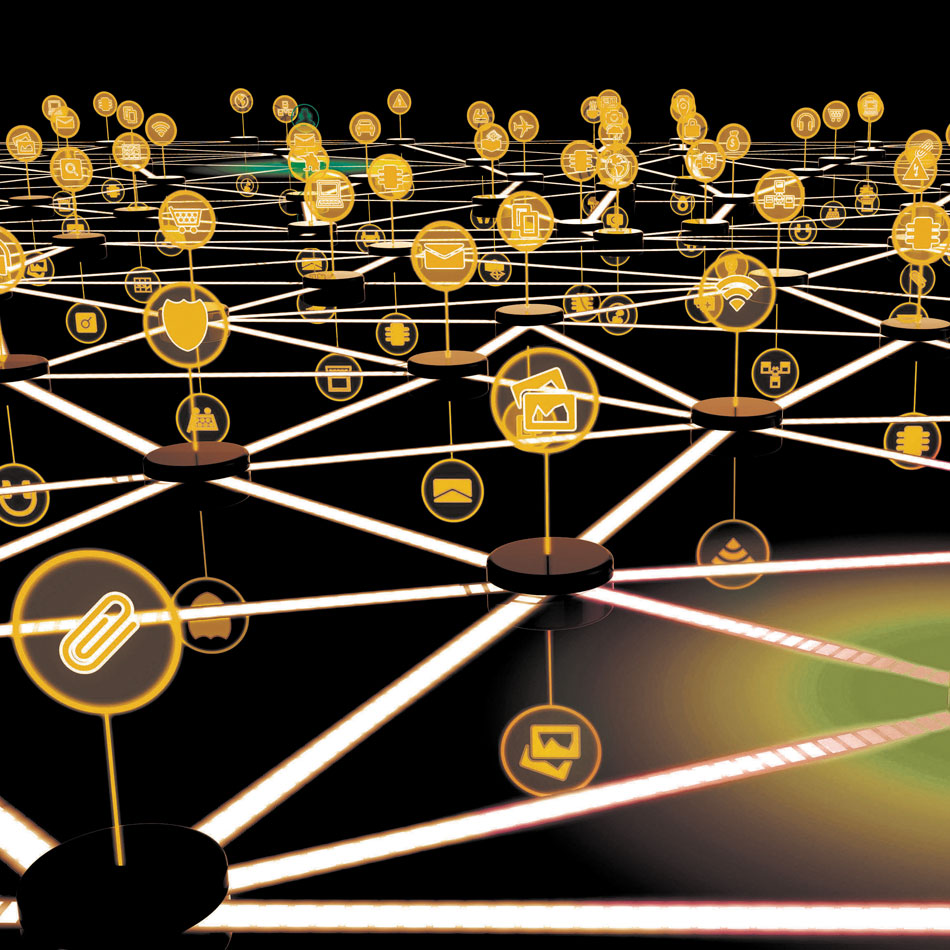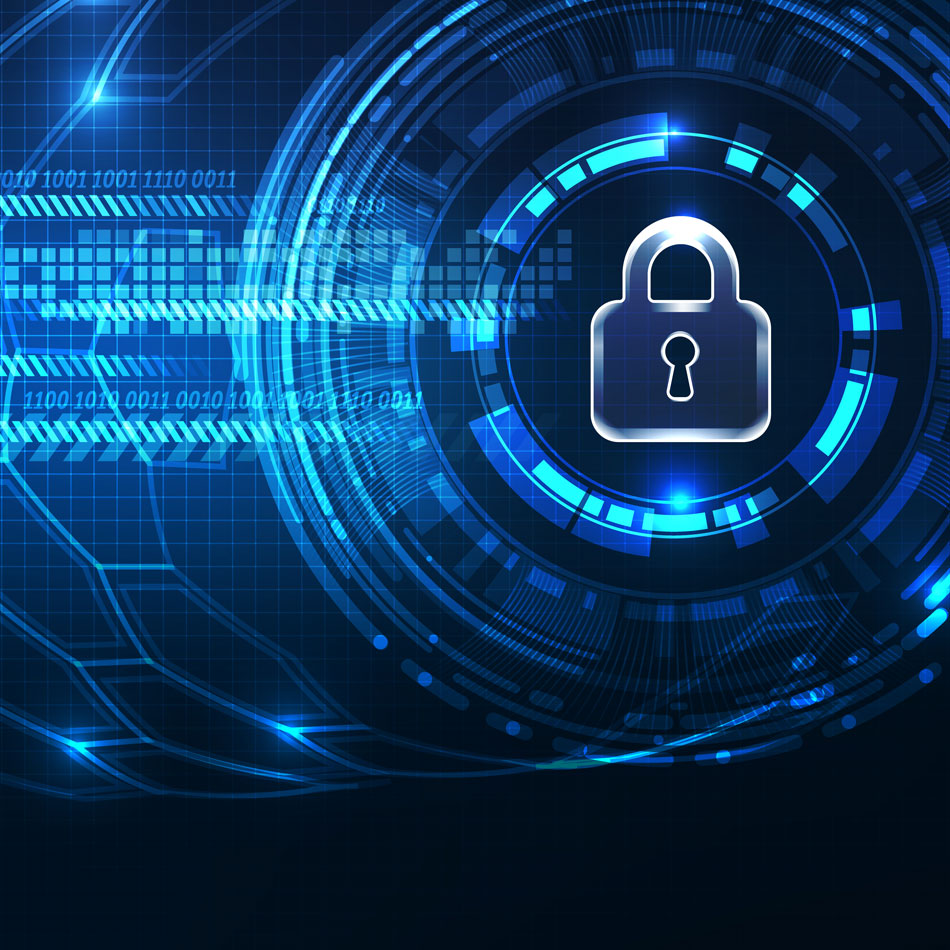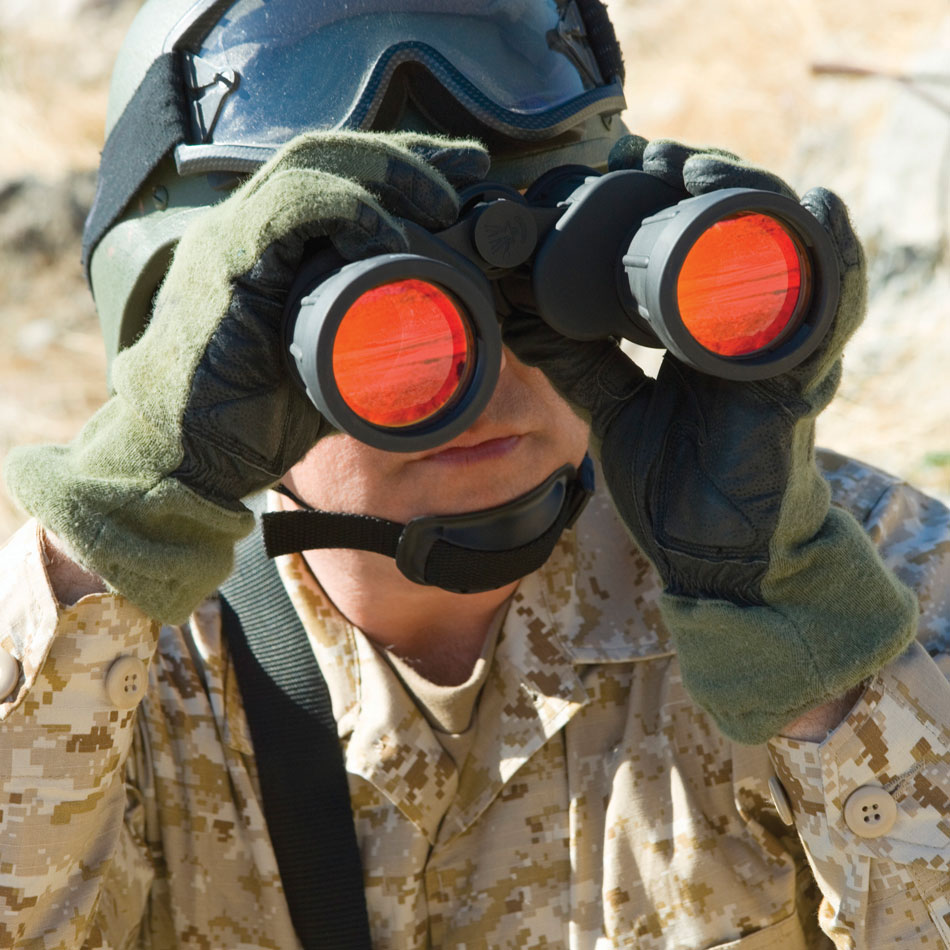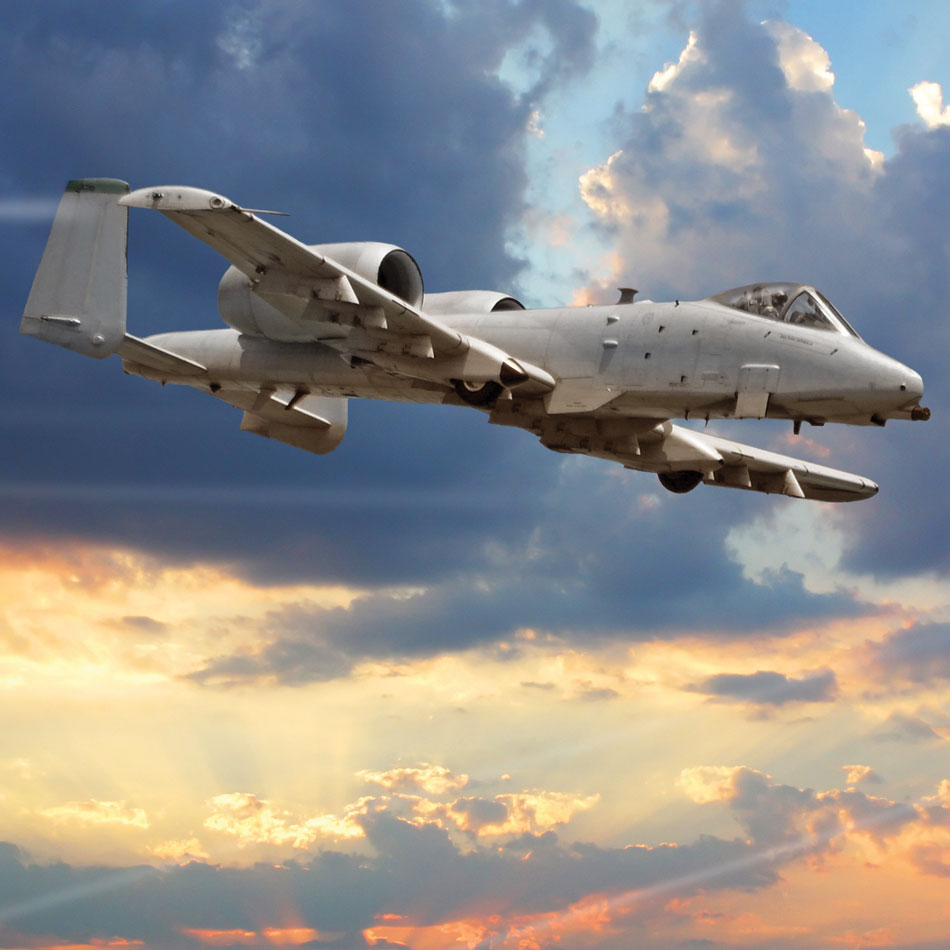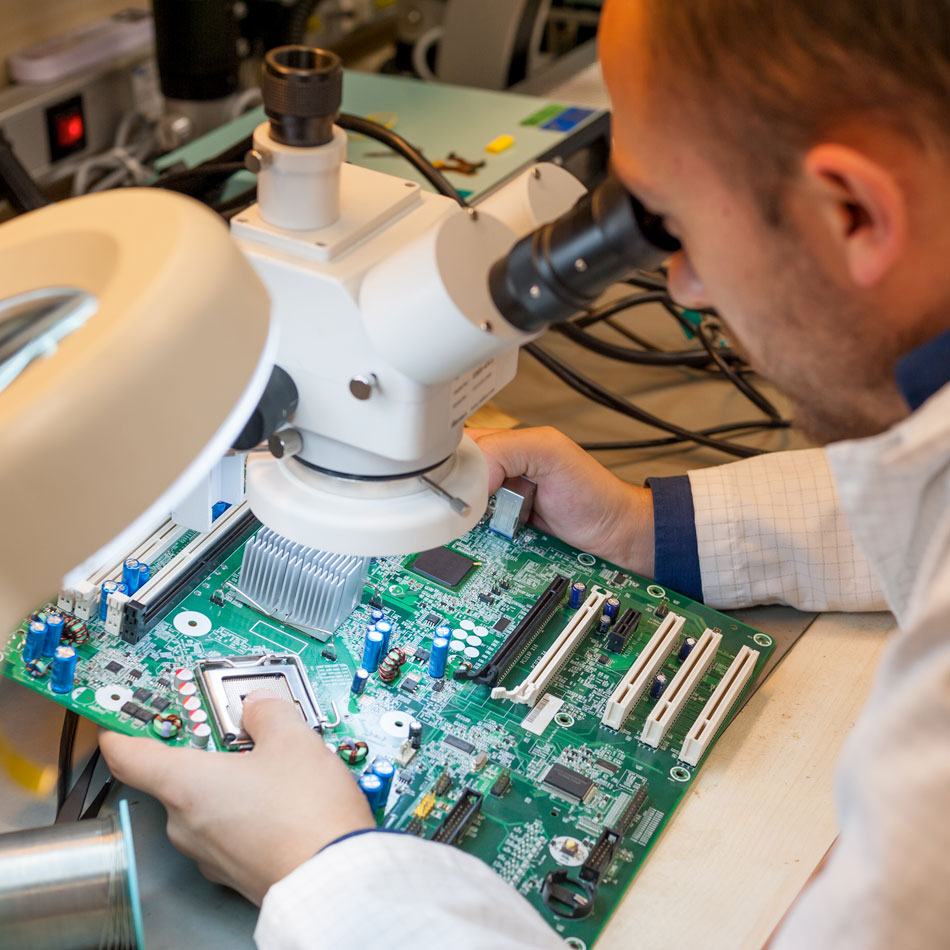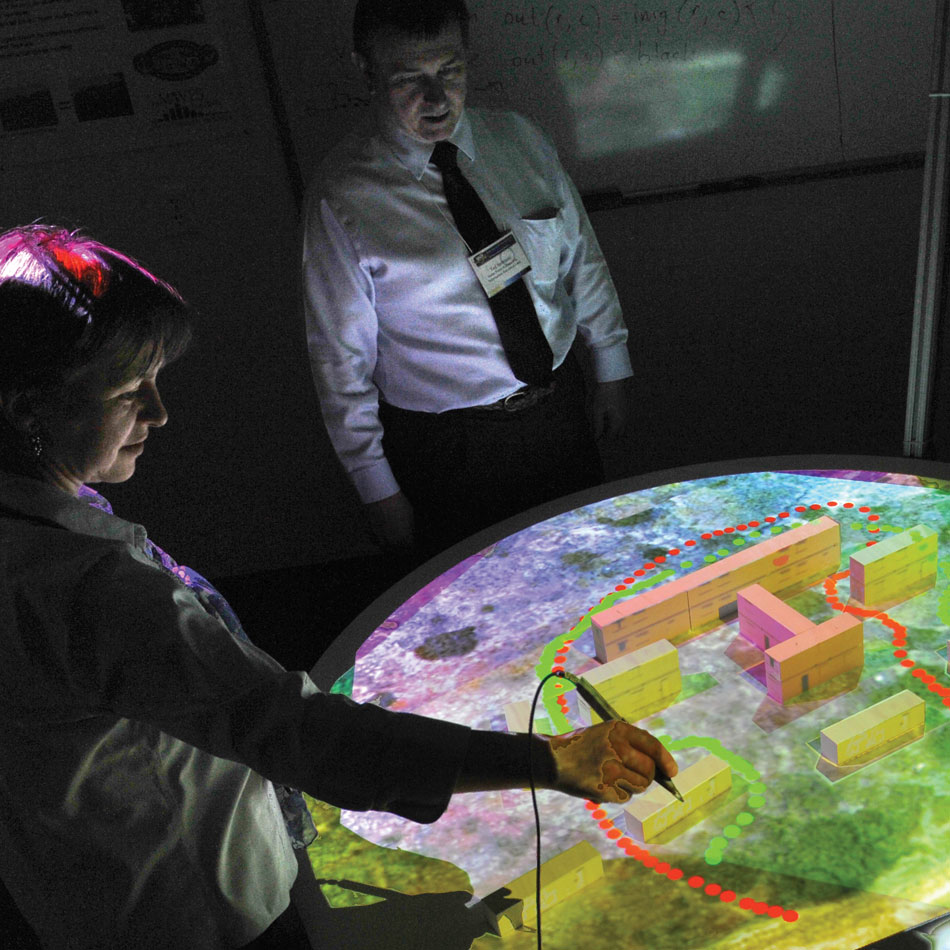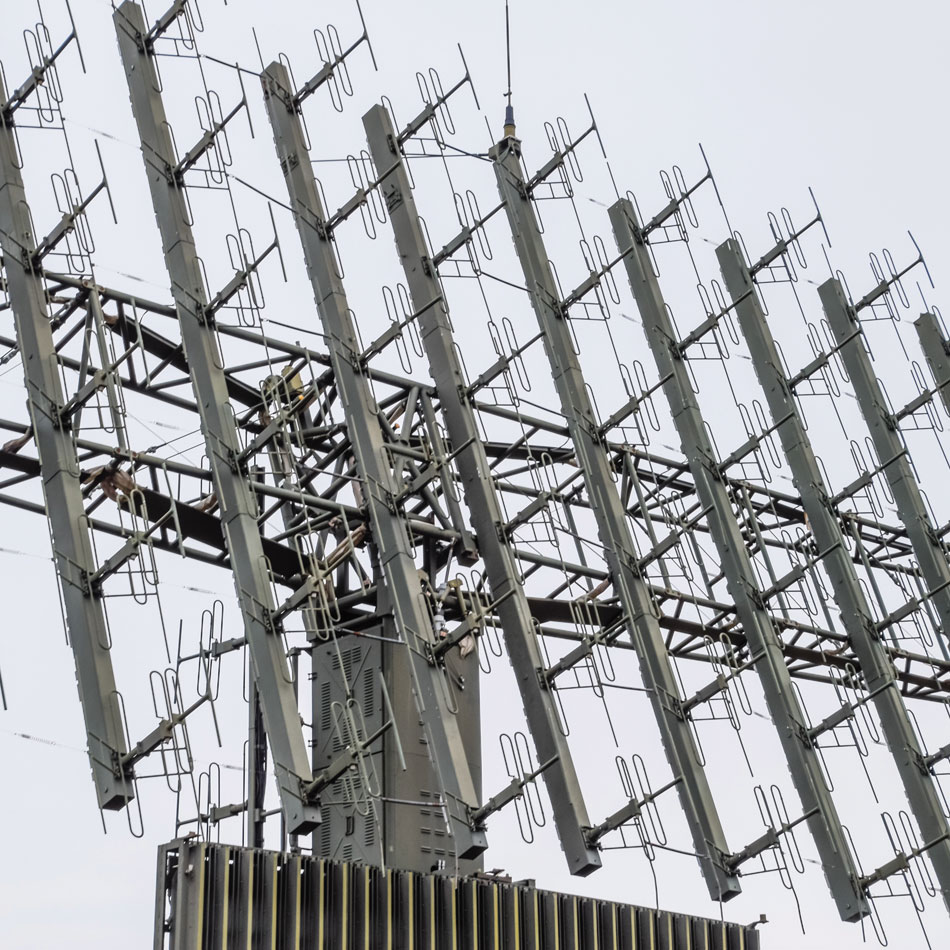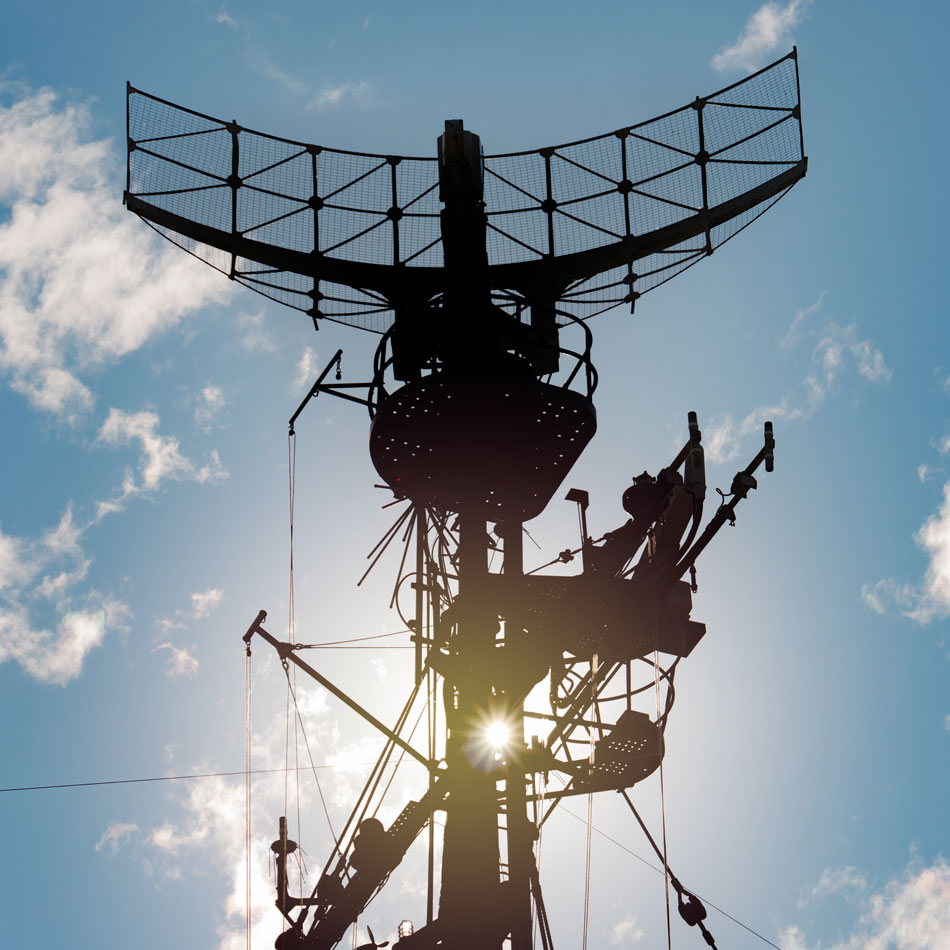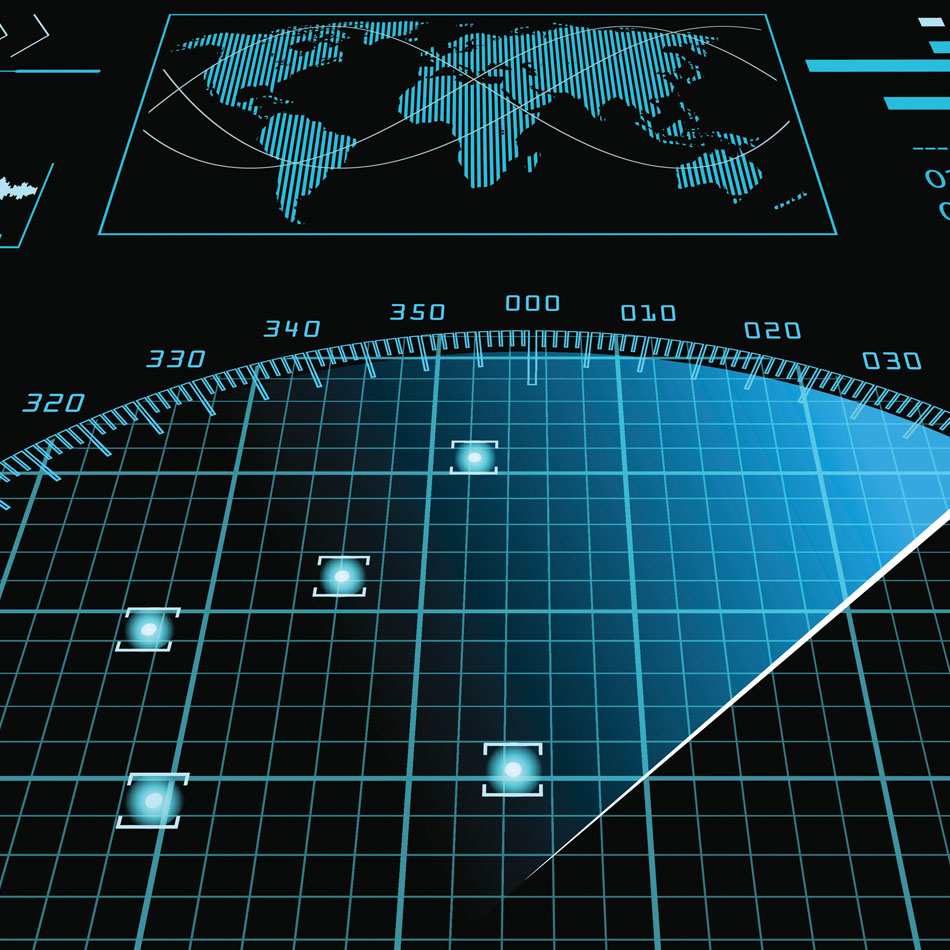Radar Signal Processing & Techniques Certificate
- Overview
- Program Requirements
- Why Choose a Certificate?
Delivery Method
ClassroomRadar Signal Processing & Techniques Certificate
Our Radar Signal Processing & Techniques Certificate will deepen your understanding of this field from the basic methods and algorithms found at the core of modern systems to the advanced techniques underlying a spectrum of radar technology. Whether your radar interests lie in defense, imaging, automotive, weather, electronic warfare, or other applications, you’ll learn from instructors at the forefront of radar research.
Program Requirements
- Effective January 2015, courses can only be applied to one certificate. If a core course for a certificate has already been applied to a previously-awarded certificate, then an additional elective must be taken.
- Certificates must be completed within 6 years; courses completed more than 6 years ago may not be applied toward certificate.
- All courses applied to a certificate program must be taken from Georgia Tech.
- This certificate does not require an application.
Your path to achievement is easy! Most certificate courses are offered in classroom locations around the U.S. You can also inquire about training at your location.
Cost
- Course load determines the cost of a certificate program.
- Calculate your total by identifying the courses needed and tallying individual course fees. Some programs offer discounts for course bundling.
Registration
- Select a certificate program, review the requirements, and determine your timeline for completion.
- Add courses to your shopping cart for purchase as you are ready to take them, or as a bundle if desired.
- Proceed to checkout to complete your registration. We accept multiple forms of payment including credit card, purchase order, a private loan (upon request), and VA benefits for certain programs.
Completion
- Certificates must be completed within six years.
- After successful completion of most individual courses, a Certificate of Course Completion will be sent.
- After successful completion of all required courses, request a transcript and program certificate audit.
- Upon verification, GTPE will email your transcript and mail your Certificate of Program Completion. Some programs host a certificate award ceremony during the final course.
Once you earn your Georgia Tech Program Certificate, tout your success on your resume and LinkedIn profile, share with your employer, and celebrate an important career growth achievement!
Why Choose a Certificate?
Professional Certificates are ideal for developing new skills and building deep expertise in a specialized area to update your professional profile, advance your career, or broaden your knowledge base.
Certificates are an “anytime” credential
Start anytime - after graduation or later in your career - and gain deeper know-how in a specific area without the commitment to a degree.
Certificates demonstrate commitment
The dedication of time to earn a certificate demonstrates that you are committed to achieving a higher standard of professional knowledge in your industry.
Certificates provide immediate “ROE”
Georgia Tech learners master real-world skills and apply them to their career the day after completion.
Certificates stand out on your resume
A Georgia Tech credential carries the professional weight to give you a competitive edge.
Who Should Attend
This certificate is designed for engineers, scientists, radar technicians, and technical managers from industry, government and educational institutions.

How You Will Benefit
- Develop a deep knowledge of a range of radar processing algoriths, from traditional basics to advanced methods, to help you make the best decisions for your institution.
- Increase the productivity of yourself and your team to gain a competitive edge in your industry.
- Establish and deepen contacts with peers and others throughout industry and government.
- Earn a recognized industry credential.
-
Grow Your Professional Network
-
Taught by Experts in the Field
Course Offerings
Learn radar principles, systems, techniques, phenomenology, and the basics of radar technology. Get up-to-date examples of modern radar systems, including microwave and millimeter-wave, and their applications. Understand antennas, transmitters, receivers, signal processors, clutter and noise,…
View Course Details »-
Jul 15, 2024 - Jul 19, 2024Register By Jul 11, 2024Las Vegas, NV$1,995
-
Oct 28, 2024 - Nov 1, 2024Register By Oct 24, 2024Atlanta, GA$1,995
-
Oct 27, 2025 - Oct 31, 2025Register By Oct 23, 2025Atlanta, GA$1,995
This course is a thorough exploration for engineers and scientists of the foundational signal processing methods for interference suppression, detection, imaging, and tracking that are at the core of most modern radar systems. It also provides a solid base for studying advanced techniques,…
View Course Details »-
Jun 25, 2024 - Jun 28, 2024Register By Jun 20, 2024Las Vegas, NV$2,695
-
Mar 3, 2025 - Mar 6, 2025Register By Feb 24, 2025Atlanta, GA$2,795
-
Jun 23, 2025 - Jun 26, 2025Register By Jun 2, 2025Las Vegas, NV$2,795
-
Sep 22, 2025 - Sep 25, 2025Register By Sep 12, 2025Atlanta, GA$2,795
DEF 3512P may only be used as an elective for one Radar certificate.
The course, Space-Based Radar, explores theory, applications, and orbital considerations for both synthetic aperture radar and moving target indication modes. Engineers, scientists, and managers working with space-based radar will benefit by examining space-based radar technology issues,…
View Course Details »There are no sessions scheduled at this time. Please check again later.
The Modern Electronic and Digital Scanned Array Antennas course provides an in-depth understanding of the physics and implementation of a wide range of array antennas. You will learn about the basics of array theory, simulation approaches, the impact of real-world errors and methods for array…
View Course Details »-
Jun 10, 2024 - Jun 14, 2024Register By Jun 6, 2024Las Vegas, NV$2,695
-
Nov 18, 2024 - Nov 22, 2024Register By Nov 14, 2024Lake Buena Vista, FL$2,695
-
Mar 17, 2025 - Mar 21, 2025Register By Mar 10, 2025San Diego, CA$2,695
This course provides a more mathematically rigorous exploration of electromagnetic warfare (EW) concepts as compared to the Basic EW course. In this advanced-level course, you will review advances in radio-frequency sensors of threat weapon systems, focusing on radar systems advances that…
View Course Details »-
Sep 9, 2024 - Sep 13, 2024Register By Sep 5, 2024Shalimar, FL$1,995
-
Feb 24, 2025 - Feb 28, 2025Register By Feb 21, 2025Atlanta, GA$1,995
It's fundamental: learn the basics of electronic protection (EP) concepts, or electronic counter-countermeasures. This Principles of Radar Electronic Protection course includes electronic warfare concepts, noise jamming, range/velocity deception, and on-board and off-board angle deception…
View Course Details »There are no sessions scheduled at this time. Please check again later.
This course is a unique deep dive Digital Radio Frequency Memory (DRFM) technology presented by Georgia Tech Research Institute Angry Kitten DRFM system design experts. New sections discuss military operational impact perspectives and Tactics Technique and Procedure (TTP) development. Popular…
View Course Details »There are no sessions scheduled at this time. Please check again later.
Looking for an introduction to the increasingly important field of Signals Intelligence (SIGINT)? In this course you will learn how the performance of a SIGINT system is impacted by algorithm selection, hardware architecture, propagation effects, and emitter characteristics. Traditional and…
View Course Details »-
Jul 23, 2024 - Jul 24, 2024Register By Jul 18, 2024Atlanta, GA$1,500
-
Nov 19, 2024 - Nov 20, 2024Register By Nov 14, 2024Lake Buena Vista, FL$1,500
In this course, you will gain an understanding of the fundamental principles of modern radar technology in simple, easy-to-understand terms. You will then be able to converse comfortably about radar topics with a radar specialist and also discover and learn to appreciate the problems a radar…
View Course Details »-
Jun 4, 2024 - Jun 6, 2024Register By May 30, 2024Las Vegas, NV$1,795
-
Nov 19, 2024 - Nov 21, 2024Register By Nov 14, 2024Lake Buena Vista, FL$1,795
Are you looking to expand your knowledge of adaptive arrays? In this Adaptive Arrays: Algorithms, Architectures and Applications course, you will study in-depth adaptive signal processing algorithms and digital beamforming architectures that can be applied to any type of sensor array, with…
View Course Details »-
Apr 30, 2024 - May 3, 2024Register By Apr 23, 2024Atlanta, GA$1,995
In this Radar Performance: Principles and Limitations course, you will review theory of coherent radar systems and then explore performance limitations relative to an ideal radar system. Examine radar operation at the introductory level for several diverse types of coherent radar systems…
View Course Details »There are no sessions scheduled at this time. Please check again later.
Continuous-wave radars continuously transmit and receive radar signals in contrast to pulse radars that alternate between transmitting and receiving. This Principles of Continuous Wave (CW) Radar course presents the benefits and challenges associated with CW Radar. The frequency modulated CW…
View Course Details »There are no sessions scheduled at this time. Please check again later.
The Principles of Pulse-Doppler Radar course provides a fundamental understanding of pulse-Doppler radar and how it is used to detect moving targets in the presence of background clutter. You'll learn about radar moving target indicator (MTI) and Doppler processing; high, medium, and low…
View Course Details »There are no sessions scheduled at this time. Please check again later.
In this course, you will gain an understanding of radar waveforms and the tools necessary to analyze, design, and select them for particular applications. You will examine waveform properties using graphics, equations, demonstrations, and an interactive software tool; get insight into…
View Course Details »-
Nov 12, 2024 - Nov 14, 2024Register By Oct 31, 2024Atlanta, GA$2,695
-
Nov 18, 2025 - Nov 20, 2025Register By Nov 13, 2025Atlanta, GA$2,795
Synthetic aperture radar (SAR) imaging is a mature technology for remote sensing and tactical and strategic surveillance in both commercial and defense applications because of its ability to combine fine-resolution two- and three-dimensional mapping with all-weather visibility. New radar…
View Course Details »-
Aug 12, 2024 - Aug 16, 2024Register By Aug 12, 2024Denver, CO$2,595
-
Mar 31, 2025 - Apr 4, 2025Register By Mar 27, 2025Online$2,595
Synthetic Aperture Radar (SAR) Image Formation Processing delivers a comprehensive and in‐depth study of the subject. This course covers all major topics related to SAR science, systems, and software. SAR science is established on a foundation of wave theory. You will learn SAR systems for…
View Course Details »-
Aug 12, 2024 - Aug 15, 2024Register By Aug 8, 2024Las Vegas, NV$2,595
This course will give you an in-depth overview of space-time adaptive processing (STAP) to radar and review of radar and digital signal processing fundamentals. You’ll learn about beamforming techniques, key STAP concepts, critical performance metrics, and practical processing architectures…
View Course Details »There are no sessions scheduled at this time. Please check again later.
If target-tracking systems is your business, this Target Tracking Concepts course is a must. You will explore the concepts associated with target tracking, including equations to assist with the explanations and the tools needed to conduct basic analysis associated with target tracking. Gain a…
View Course Details »There are no sessions scheduled at this time. Please check again later.
Learn the fundamentals of target tracking. In this Target Tracking in Sensor Systems course, you will obtain an overview of the principles of the sensor systems for which target tracking algorithms are implemented. The course focuses on the concepts associated with target tracking, including…
View Course Details »-
Aug 20, 2024 - Aug 23, 2024Register By Aug 15, 2024Atlanta, GA$1,895
Review basic techniques for representing and processing digital signals, with an emphasis on methods commonly used in sensor-processing systems, such as communications, radar, and infrared systems. Understand continuous and discrete signals and transforms, as well as the representation and…
View Course Details »There are no sessions scheduled at this time. Please check again later.
Build on your knowledge of target-tracking concepts! In this Target Tracking Architectures, Algorithms and Techniques course, explore advanced methods for target tracking. You will learn equations to assist with the explanations, examples, and insights into applying these techniques to real…
View Course Details »There are no sessions scheduled at this time. Please check again later.
Radar target detection, estimation, and tracking performance is frequently limited by “clutter,” strong returns generated by the Earth’s surface. Since World War II, considerable effort has been put into developing methods to suppress clutter returns or isolate them from targets, including…
View Course Details »There are no sessions scheduled at this time. Please check again later.
The course, Fundamentals of Space-Based Radar, explores theory, applications, and orbital considerations for both synthetic aperture radar and moving target indication modes. Engineers, scientists, and managers working with space-based radar will benefit by examining space-based radar…
View Course Details »-
Sep 10, 2024 - Sep 12, 2024Register By Sep 5, 2024Atlanta, GA$1,895
-
Sep 9, 2025 - Sep 11, 2025Register By Sep 4, 2025Atlanta, GA$1,895
The following courses are no longer offered but still apply if completed within the six-year rule:
- Phased Array Antennas and Adaptive Techniques (DEF 1504P)
- Basic Radar Concepts / Synthetic Aperture Radar (DEF 3511P)
- Adaptive Array Radar Processing (DEF 3515P)
- Introduction to Radar Cross Section (DEF 3516P)
- Principles of Radar Target Identification (DEF 3517P)
- Advanced Target Tracking for Ballistic Missile Defense (DEF 3525P)
- Advanced Target Tracking for Air Defense (DEF 3527P)
Related Certificates

